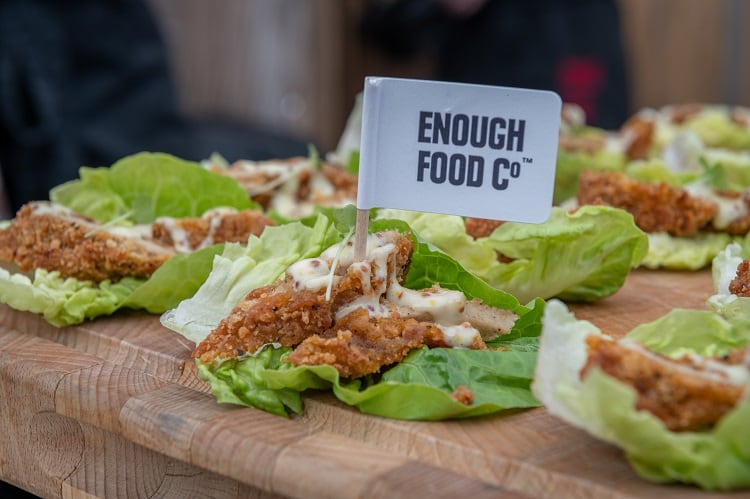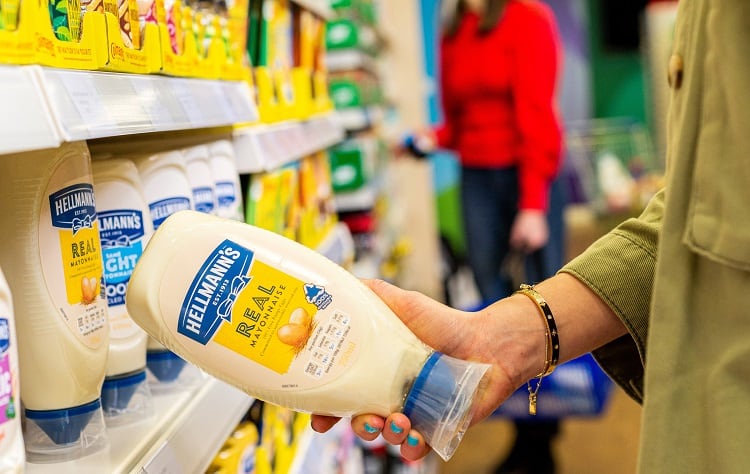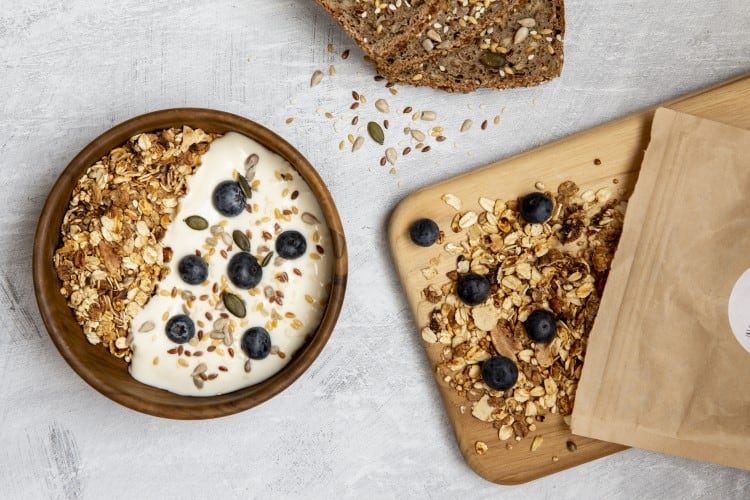ENOUGH (formerly 3f Bio) produces ABUNDA mycoprotein, a food ingredient made from fungi, at its Sas van Gent facility in the Netherlands. ABUNDA contains all nine essential amino acids, is high in fibre, and can be used to make meat, seafood and dairy alternatives.
Having opened the facility last year, ENOUGH has now secured €40m in funding to scale up production. “With these funds we will double the capacity in the Netherlands from 10k to 20k tonnes,” CEO Jim Laird told FoodNavigator. “We expect the second line to be operational by early 2025.”
The funding round was co-led by climate tech VC World Fund and food tech investor CPT Capital, with support from AXA IM Alts, HAL Investments, Onassis Group, Tailored Solutions and Sottish Enterprise.
“ENOUGH has made great strides in the past few years to launch out new factory in the Netherlands and scape up to work with customers across the UK and Europe,” said Laird. “With this new funding, we will accelerate that growth.
Fermenting protein for a sustainable future
To make ABUNDA mycoprotein, ENOUGH feeds fungi with sugars sourced from grain in a fermentation process it likens to beer and wine production. The company sources the wheat sugars from a Cargill factory, which it is co-located alongside in Sas van Gent.
The result is mycoprotein – an ingredient with a neutral flavour and meat-like texture suitable for making alternative meat, seafood, and even dairy products.
Companies currently incorporating ABUNDA into their plant-based meat products include Unilever’s The Vegetarian Butcher and European poultry processor Plukon Food Group, which is developing animal-free chicken and meat alternative products. “You can hardly tell the difference between our non-animal chicken with ABUNDA and traditional chicken,” said Plukon CCO Niels van Gestel.
From a sustainability perspective, ABUNDA is up to 15 times more efficient than protein from beef, which ENOUGH attributes to its proprietary technology and zero-waste production. It uses up to 93% less water, 97% less feed and causes 97% fewer CO2 emissions than protein from beef.
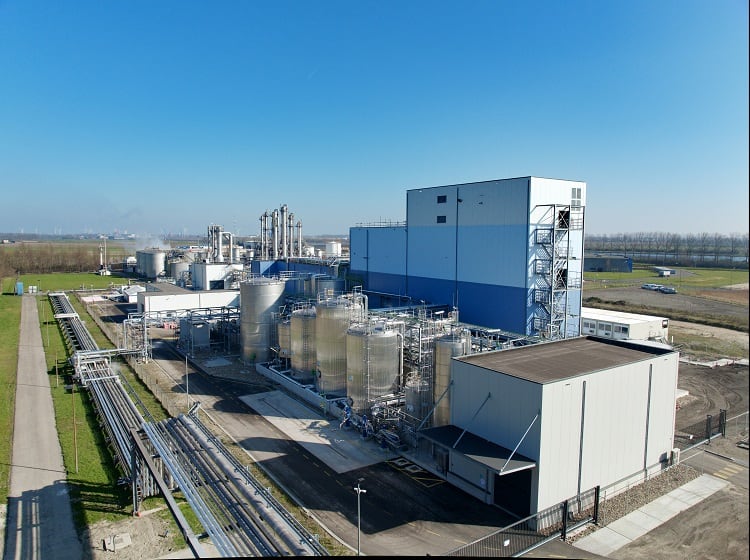
Despite strong sustainability credentials for meat alternative products across the board, the sector has observed signs of a slowdown of late. Some plant-based meat companies have hired administrators (Meatless Farm, for one), and others are losing revenue amid reduced consumer demand.
But despite this slowdown – or ‘shakedown’ as it has been referred to – producing ‘vast quantities’ of sustainable protein must remain of the world’ ‘most urgent’ priorities, believes ENOUGH.
The global meat industry accounts for nearly 15% of all greenhouse gas emissions, while also being of the largest sources of methane and causes of deforestation. At the same time, analysts have backed plant-based food to grow in market share. In 2021, research by BCG predicted the alternative protein market to reach $290bn (€266bn) by 2035, with at least 10% of meat, eggs, dairy and seafood eaten around the globe coming from alternative sources.
But according to ENOUGH, current solutions are only capable of producing low-scale quantities, which are more expensive and inaccessible to the mass market. This is what the company is aiming to change.
“The alternative protein market is a multi-billion-dollar opportunity, and the ethical and environmental reasons to embrace non-animal protein sources are more pressing than ever,” said Laird.
Scaling up to become the leading sustainable protein producer
The €40m funding will be used to double ENOUGH’s capacity at the Sas van Gent site from 10,000 to 20,000 tonnes. The facility could support more than 60,000 tonnes per year – the equivalent of growing one cow’s worth of protein every two minutes – but it would take another three to four years with a max of one additional line per year, the CEO told this publication.
At that stage, ENOUGH would be considered the leading player to produce sustainable protein at such a large scale. “We believe we’re the largest new protein facility built this decade,” said Laird.
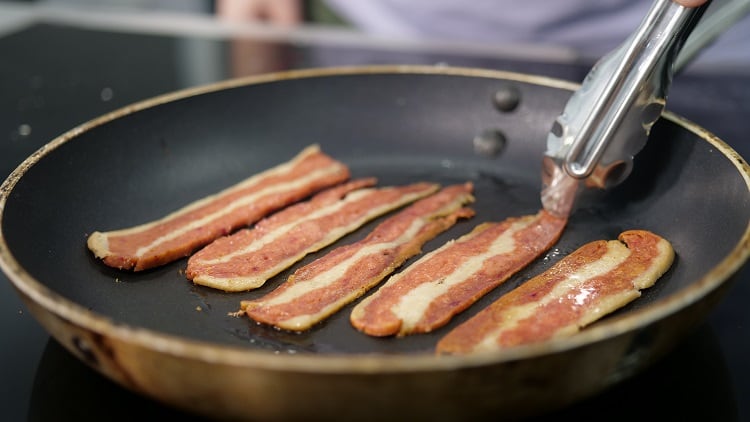
Despite its growing size, ENOUGH is competing with other mycoprotein producers including Sweden-headquartered Mycorena and mycoprotein pioneer Quorn. The latter recently set up an ingredients division to supply its mycoprotein to other food and beverage makers.
As to whether the new division, Marlow Ingredients, makes for big competition for ENOUGH, Laird said he welcomes more players to the sector. “ENOUGH’s view is that we are competing in the 600m tonne global protein market, where the vast majority of this is supplied by intensive animal farming.
“We have a firm believe that products made using fungi from protein will help to make the best tasting food, which with simple ingredients lists taste as good or better, and cost the same or less than the animal alternative.
“We know that ENOUGH’s capacity can only account for a tiny fraction of the market, and so we welcome other mycoprotein suppliers in the market.”
At the same time, ENOUGH is keeping an eye on global demand to watch for signs it’s increasing, it would also look to second territories in parallel to its Dutch site scale up. The hope would be to replicate the co-location model it has in Europe within continents such as North America or Asia, Laird revealed.


